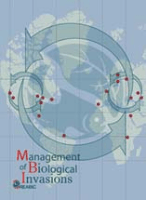
Management of Biological Invasions
Scope & Guideline
Innovating Strategies for Sustainable Ecosystem Management
Introduction
Aims and Scopes
- Ecological Impacts of Invasive Species:
Research on how invasive species alter ecosystems, affect native biodiversity, and disrupt ecological processes. - Control and Management Strategies:
Development and evaluation of methodologies for the prevention, control, and eradication of invasive species, including both chemical and non-chemical approaches. - Risk Assessment and Modeling:
Utilization of quantitative models and assessments to predict the potential impacts of invasive species and inform management decisions. - Monitoring and Surveillance Techniques:
Advancements in technologies such as environmental DNA (eDNA) and remote sensing for the early detection and monitoring of invasive species. - Policy and Governance:
Analysis of policies and frameworks for managing biological invasions at local, national, and international levels, emphasizing stakeholder engagement. - Human Dimensions:
Investigating the social, economic, and cultural aspects of invasive species management, including public perceptions and community involvement.
Trending and Emerging
- Environmental DNA (eDNA) Applications:
There is a significant increase in studies utilizing eDNA for the detection and monitoring of invasive species, reflecting advancements in molecular techniques and their effectiveness in early detection. - Integrated Management Approaches:
A trend towards multidisciplinary strategies that combine ecological, technological, and socio-economic factors for more effective management of invasive species. - Climate Change and Invasion Dynamics:
Research exploring the interplay between climate change and the spread of invasive species is emerging, emphasizing the need for adaptive management strategies. - Community Engagement and Citizen Science:
An increasing number of studies are highlighting the role of community involvement and citizen science in monitoring and managing invasive species, showcasing innovative participatory approaches. - Technological Innovations in Monitoring:
Emerging technologies, including drone surveillance and remote sensing, are increasingly featured, demonstrating their potential in invasive species management.
Declining or Waning
- Traditional Biological Control Methods:
There has been a noticeable decline in papers focused on classical biological control methods, possibly due to the increased scrutiny of ecological risks associated with introducing additional species. - General Surveys of Invasive Species:
Broad surveys lacking specific management implications or methodologies are less frequently published, indicating a shift towards more applied and focused research. - Focus on Terrestrial Invasions:
Research on terrestrial invasive species is becoming less prominent compared to aquatic invasions, reflecting a growing recognition of the ecological and economic impacts of aquatic invaders.
Similar Journals
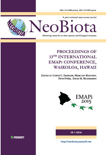
NeoBiota
Exploring the depths of biodiversity and conservation.NeoBiota, published by Pensoft Publishers in Bulgaria, is a preeminent Open Access journal dedicated to advancing knowledge in biodiversity, ecology, and conservation science. Since its inception in 2011, it has established itself as a pivotal platform for scholarly discourse, maintaining an impressive impact factor that places it in the Q1 quartile across multiple categories, including Animal Science and Zoology, Aquatic Science, and Ecology. With its articles indexed in leading databases and Scopus rankings that affirm its standing (e.g., rank #12 in Animal Science and Zoology), NeoBiota serves as a vital resource for researchers, professionals, and students. The journal emphasizes the synthesis of ecological modeling and evolutionary processes, fostering interdisciplinary collaboration and promoting rigorous research methodologies. Authors are encouraged to contribute their insights on biodiversity metrics, ecosystem dynamics, and the ecological implications of anthropogenic changes, making NeoBiota essential for anyone invested in the future of our planet's ecosystems. Discover the treasures of ecological scholarship through this influential journal.
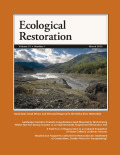
Ecological Restoration
Illuminating pathways to healthier ecosystems.Ecological Restoration is a renowned journal published by University of Wisconsin Press, focusing on the critical and evolving field of ecological restoration. With its inception dating back to 1999 and converging through the years to 2024, the journal has carved out a significant niche, reflected in its recognition within the Q3 category of Nature and Landscape Conservation for 2023. Although the journal is not readily available as open access, it offers an essential platform for researchers, professionals, and students to publish their findings and collaborate across diverse topics relevant to environmental science and restoration practices. Ranked #123 out of 211 in its Scopus category and positioned in the 41st percentile, Ecological Restoration is dedicated to advancing the dialogue surrounding restoration techniques, ecological health, and sustainability efforts in response to ongoing global environmental challenges. This makes it a vital resource for anyone committed to enhancing the integrity of our natural ecosystems.
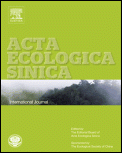
Acta Ecologica Sinica
Exploring the depths of ecological science for global impact.Acta Ecologica Sinica, published by Elsevier, is a prominent journal in the field of ecology, with a strong focus on fostering understanding in ecological principles and their applications. Established in China, this journal holds an impressive Q2 categorization in both Ecology and Ecology, Evolution, Behavior and Systematics as of 2023, positioning it within the top tier of ecological research. With its Scopus rankings placing it in the 81st and 78th percentiles in relevant ecological domains, it serves as a vital platform for researchers and practitioners to disseminate findings that promote ecological sustainability. Although it operates under a traditional access model, its significant impact is underscored by its systematic convergence of key ecological inquiries across multiple years (2006-2008, 2014, 2017-2023). By engaging with the latest empirical studies, theoretical advancements, and methodological innovations, Acta Ecologica Sinica is indispensable for scholars dedicated to advancing ecological knowledge and addressing environmental challenges.
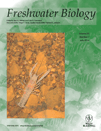
FRESHWATER BIOLOGY
Connecting Researchers for a Sustainable Aquatic FutureFreshwater Biology is a premier academic journal dedicated to advancing the study of freshwater ecosystems and their biological diversity. Published by Wiley, this highly esteemed journal features an impact factor that reflects its influence within the field of aquatic science, maintaining a distinguished Q1 rank as per the 2023 standards. The journal is recognized for its comprehensive coverage of original research articles, review papers, and methodological advancements that address a range of topics from ecological interactions to conservation strategies in freshwater environments. With its extensive archive dating from 1971 to 2024, Freshwater Biology serves as an invaluable resource for researchers, professionals, and students looking to deepen their understanding of aquatic systems. Though it does not currently offer Open Access options, readers can access vital findings and contribute to the ongoing discourse in this critical area of study. Based in the United Kingdom, with its commitment to rigorous peer-review and high publication standards, Freshwater Biology continues to be a cornerstone publication in the field, enhancing our understanding of freshwater ecosystems and their management.
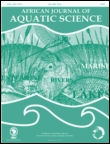
AFRICAN JOURNAL OF AQUATIC SCIENCE
Advancing aquatic knowledge for a sustainable future.AFRICAN JOURNAL OF AQUATIC SCIENCE, published by TAYLOR & FRANCIS LTD, is a premier scholarly journal dedicated to the field of aquatic science, ecology, and environmental management, playing a crucial role in advancing research and knowledge in these vital areas. With an impressive Q2 ranking in both Aquatic Science and Ecology, Evolution, Behavior and Systematics, the journal seeks to publish high-quality research encompassing a wide range of topics related to freshwater and marine ecosystems, including biodiversity, conservation strategies, and the impacts of climate change. Featuring a rich history of publication from 2000 to 2024, the journal not only embraces rigorous peer review but also aims to foster collaboration and dialogue among researchers, practitioners, and students interested in aquatic environments. Readers will find that the journal’s commitment to impactful scientific communication is reflected in its notable rankings within the Scopus database, making it an essential resource for those engaged in aquatic research and management.

Nature Conservation Research
Exploring the intersection of science and environmental stewardship.Nature Conservation Research is a prominent open-access journal that has been dedicated to advancing the field of conservation science since its inception in 2016. Published by the SARANSK FOND PODDERZKI & RAZVITIA ZAPOVEDNYH in the Russian Federation, this journal serves as a vital platform for researchers, professionals, and students alike, providing critical insights into ecological and environmental issues. With an impressive impact factor and ranked in the second quartile across multiple categories—including Agricultural and Biological Sciences, Earth and Planetary Sciences, Ecology, and Nature and Landscape Conservation—Nature Conservation Research stands at the forefront of impactful scientific discourse. The journal not only aims to disseminate high-quality research findings but also seeks to foster collaboration and innovation in conservation practices globally. By ensuring open access to its content, it promotes widespread dissemination of knowledge, crucial in the fight against biodiversity loss and environmental degradation. Researchers and practitioners contributing to the journal will find themselves at the convergence of science and conservation efforts, paving the way for sustainable ecosystem management.
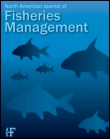
NORTH AMERICAN JOURNAL OF FISHERIES MANAGEMENT
Advancing Sustainable Fisheries Science and ManagementNORTH AMERICAN JOURNAL OF FISHERIES MANAGEMENT, published by WILEY, is a premier peer-reviewed journal dedicated to advancing the science and management of freshwater and marine fisheries across North America. With an ISSN of 0275-5947 and E-ISSN of 1548-8675, this esteemed journal has been a crucial platform for innovative research from its inception in 1981 through to its anticipated evolution in 2024. The journal is recognized for its rigorous scholarship, evidenced by its impact in various categories with a Q2 ranking in Aquatic Science, Ecology, and Ecology, Evolution, Behavior and Systematics, as well as a Q3 ranking in the domain of Management, Monitoring, Policy and Law. Researchers and practitioners can access cutting-edge findings that address critical environmental challenges and promote sustainable fisheries management. With a consistent focus on ecological implications and policy development, this journal serves as an essential resource for those aiming to make a significant impact in fisheries science and management.

JOURNAL OF AQUATIC PLANT MANAGEMENT
Innovating practices for healthier aquatic environments.JOURNAL OF AQUATIC PLANT MANAGEMENT is a key scholarly publication focusing on the management and ecological aspects of aquatic plant species. Published by the Aquatic Plant Management Society, Inc, this journal serves as an essential resource for researchers, practitioners, and policymakers involved in aquatic ecology, environmental science, and plant management. Although it does not offer open access, it remains influential in its peer-reviewed contributions to the field. Covering a broad spectrum of topics related to the management of aquatic plants, the journal has established its presence in significant academic databases and is well-regarded in areas such as Agricultural and Biological Sciences and Environmental Science. Despite facing challenges reflected in its Scopus rankings, which position it within the lower percentiles for various categories, the journal continues to strive towards enhancing our understanding of aquatic systems and the interplay of plant species therein. With its inception dating back to 1979, the journal underscores the long-term commitment to advancing knowledge in aquatic plant management.
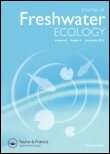
JOURNAL OF FRESHWATER ECOLOGY
Unveiling the mysteries of freshwater biodiversity.JOURNAL OF FRESHWATER ECOLOGY, published by Taylor & Francis Inc, is an esteemed source of research dedicated to advancing the understanding of freshwater ecosystems. Established in 1981, this Open Access journal has provided a platform for innovative studies and groundbreaking articles relevant to the fields of Aquatic Science and Ecology. With its HIndex reflecting a commitment to quality scholarship, the journal is currently classified in the Q3 category for both Aquatic Science and Ecology, Evolution, Behavior and Systematics, indicating its respectable impact within these disciplines. The journal ranks within the 45th percentile in Ecology and the 41st percentile in Aquatic Science on Scopus, highlighting its relevance to a global audience of researchers and practitioners. By facilitating unrestricted access to research findings since 2017, JOURNAL OF FRESHWATER ECOLOGY aims to enrich our understanding of freshwater systems and their conservation, making it an essential resource for those invested in ecological research and environmental sustainability.
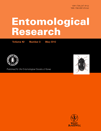
ENTOMOLOGICAL RESEARCH
Pioneering Discoveries in Biodiversity and Insect ImpactENTOMOLOGICAL RESEARCH, published by Wiley, is a prominent journal within the field of Insect Science, with a significant focus on advancing our understanding of entomological studies, including pest management, biodiversity, and ecological impacts of insects. Since its inception in 2007, the journal has served as a vital platform for researchers and practitioners to publish high-quality, peer-reviewed articles that contribute to the growing body of knowledge in this essential discipline. With an H-index illustrating its citation impact and its classification in the 2023 Scopus quartile rankings at Q3, ENTOMOLOGICAL RESEARCH ranks 69 out of 181 journals in its field, positioning itself within the 62nd percentile, which underscores its relevance and contribution to agricultural and biological sciences. Although it does not offer Open Access, the journal remains committed to ensuring that its content reaches the widest possible audience, supporting ongoing discoveries and innovations in insect science. For researchers, professionals, and students seeking to remain at the forefront of entomological advancements, ENTOMOLOGICAL RESEARCH is an indispensable resource.